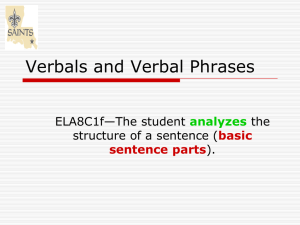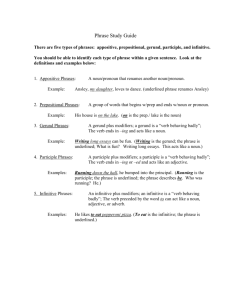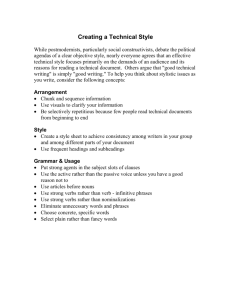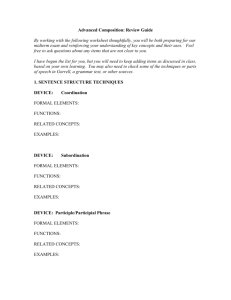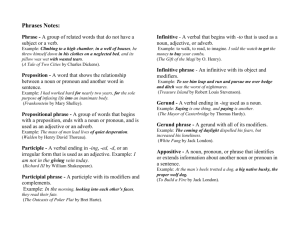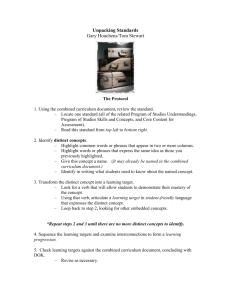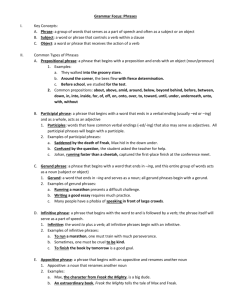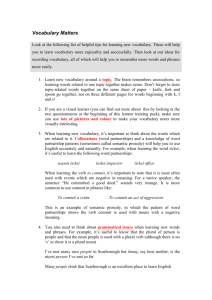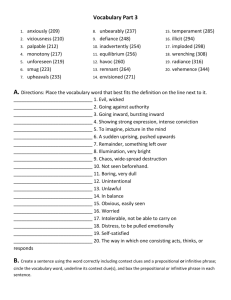Study Guide Final Exam
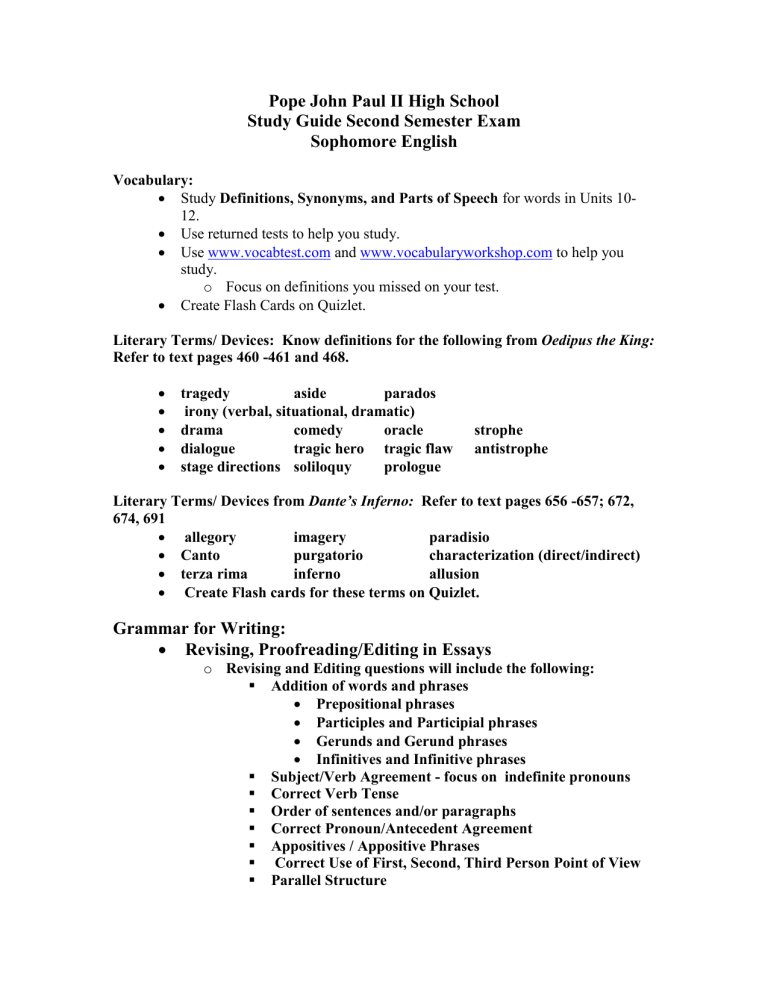
Pope John Paul II High School
Study Guide Second Semester Exam
Sophomore English
Vocabulary:
Study Definitions, Synonyms, and Parts of Speech for words in Units 10-
12.
Use returned tests to help you study.
Use www.vocabtest.com
and www.vocabularyworkshop.com
to help you study. o Focus on definitions you missed on your test.
Create Flash Cards on Quizlet.
Literary Terms/ Devices: Know definitions for the following from Oedipus the King:
Refer to text pages 460 -461 and 468.
tragedy aside parados
irony (verbal, situational, dramatic)
drama
dialogue comedy tragic hero oracle tragic flaw
stage directions soliloquy prologue strophe antistrophe
Literary Terms/ Devices from Dante’s Inferno: Refer to text pages 656 -657; 672,
674, 691
allegory
Canto
terza rima imagery purgatorio inferno paradisio characterization (direct/indirect) allusion
Create Flash cards for these terms on Quizlet.
Grammar for Writing:
Revising, Proofreading/Editing in Essays o Revising and Editing questions will include the following:
Addition of words and phrases
Prepositional phrases
Participles and Participial phrases
Gerunds and Gerund phrases
Infinitives and Infinitive phrases
Subject/Verb Agreement - focus on indefinite pronouns
Correct Verb Tense
Order of sentences and/or paragraphs
Correct Pronoun/Antecedent Agreement
Appositives / Appositive Phrases
Correct Use of First, Second, Third Person Point of View
Parallel Structure
Literature:
Oedipus the King - Text pages 460 – 526 o Review all online resources o Review the play o Know the Characters o Review all tests and handouts
The Kite Runner – Make sure you have read the entire book o Refer to handouts that include vocabulary, plot summaries and quotations (handouts were distributed to you and are still posted on my website under Literature Circles). o Review all Study Guides and Summaries as well as the character list that can be found under Literature Circles on my website: mrs-sullivan.com
Dante’s Inferno: Cantos I, III, V, and XXXIV – Text pages 656
- 692 o Review all online resources – powerpoints, videos, notes, handouts o Review the name of all characters and their relationship to other characters o Review all returned tests o Review all handouts o Create Flashcards for yourself on Quizlet.com by setting up a free account. o Review notes posted on mrs-sullivan.com under the heading
Literature. o Review all of the Cantos.
Grammar:
Prepositions and Prepositional Phrases – Grammar for Writing
Book pages 137 – 138 o The bird on the stamp is a scarlet tanager.
Participles and Participial Phrases: o A participle is a verb form that acts as an adjective modifying a noun or pronoun.
There are two kinds of participles: present (-ing ending), and past (-ed ending)
The past participles of irregular verbs have different endings: written, known, run, seen, etc. o Participle:
We listened to the speaker’s opening remarks.
o Participial Phrase: An article published recently by Julia Reed says that the military look is always in fashion .
Gerunds and Gerund Phrases – text pages 143 – 144 o A Gerund is a verb form that ends in –ing and acts as a noun, and it can be used as a subject, direct object, object of a preposition, and a predicate noun.
Jogging is Matt’s favorite exercise. (subject)
The magazine article discusses jogging. (direct object)
His early morning habit is jogging. (Predicate noun)
It details the benefits and drawbacks of jogging. (object of the preposition. o Gerund Phrases are made up of a gerund and all of its modifiers and complements. A Gerund Phrase’s modifiers includes adjectives, adverbs, and prepositional phrases. The entire phrase functions as a noun.
Walking the dog is Zach’s responsibility. (subject)
Lauren’s least favorite job is walking the dog. (Predicate noun)
Luckily, Zach likes taking the dog for a walk. (direct object)
Lauren and Zach fight about doing jobs around the house.
(Object of the preposition)
Infinitives and Infinitive Phrases : Text Pages145 -146 o An Infinitive is a verb form that is almost always preceded by the word “to.” In a sentence, an infinitive can act a noun, an adjective, or an adverb
I plan to compete. (Infinitive as a noun)
I was among the first runners to enter. (Infinitive as an adjective)
I am eager to win. (Infinitive as an adverb) o An Infinitive Phrase is a phrase made up of an infinitive and all of its modifiers and complements. It may contain one or more prepositional phrases.
To land on the moon was once a dream. (Infinitive Phrase used as a noun – subject)
We ran the race to raise money for medical research.
(Infinitive Phrase used as an adverb)
Subject/verb agreement when using Indefinite Pronouns – text
Page 193 o Each of the poem's sections is divided into cantos. (Singular subject takes singular verb)
2.
Each of the sinners is punished according to the plan of symbolic retribution.
3. Everything is dark and dreary in the woods.
4. One of the characters in the story represents reason.
5. Another of the great poets is Homer.
Fragments and Run-On Sentences o Fragment: studying all night
Correction: Add a subject – The students were studying all night. o Run-On: We went to the store, we didn’t have enough money.
Correction: Add correct punctuation and/or conjunctions.
We went to the store , but we did not have enough money.
( Added a coordinating conjunction turning sentence into a compound sentence which has two independent clauses connected by the conjunction “and” plus a comma).
We went to the store ; we didn’t have enough money. ( Added a semicolon turning the sentence into a compound sentence).
We went to the store . W e didn’t have enough money. ( Added a period and capitalized the first letter of “We” to turn the
Run-On Sentence into two separate sentences.
Although we went to the store, we didn’t have enough money.
( Added a subordinating conjunction to turn the sentence into a Complex Sentence with one dependent clause and one independent clause).
Possessive Forms of Nouns – o The boy’s bike o The boys’ bikes
Pronouns and Their Antecedents – page 193
Know the difference between the following words: than / then to /two/ too accept / except affect / effect your /you’re there/ their / they’re a lot / allot of / have
